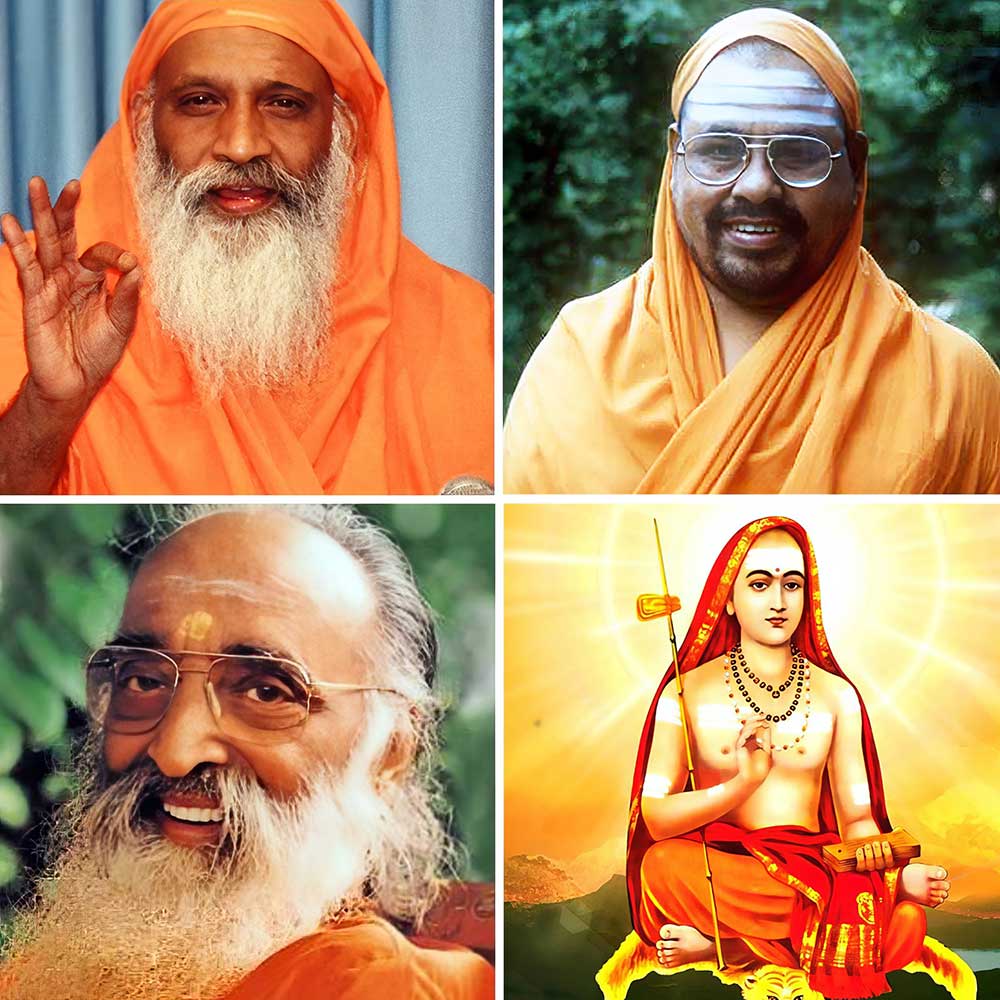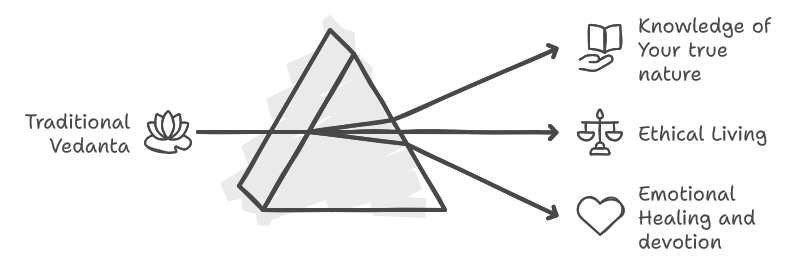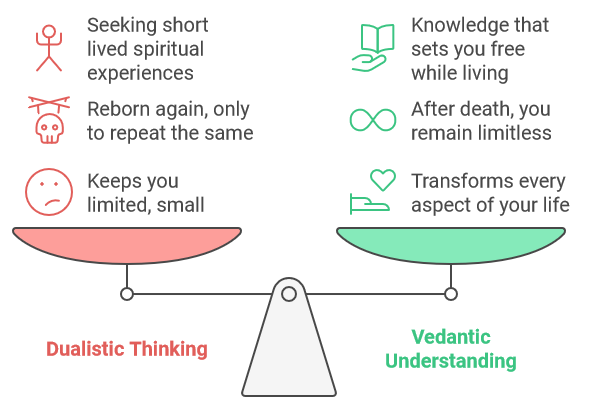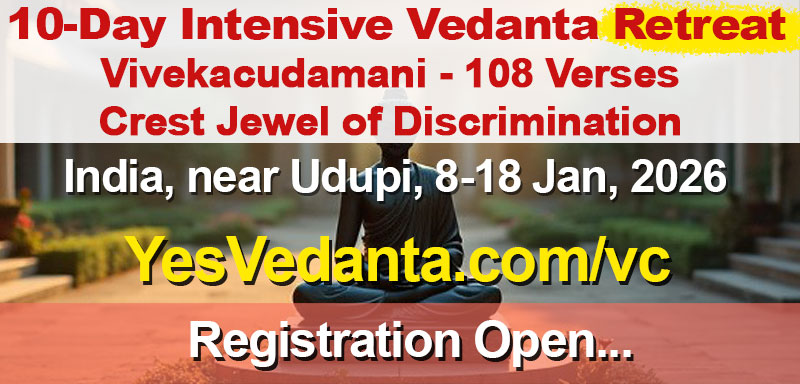“Discover True Freedom — Simple Wisdom from Ancient Seers to Navigate Life's Journey…”
Welcome to the timeless wisdom of Advaita Vedanta, a non-dual philosophy rooted in the ancient Vedas. Through revered texts like the Upanishads, Bhagavad Gita, and Brahma Sutra – we explore life's deepest questions: “Who am I? What is my relationship to cause of the universe? What is life's ultimate purpose? How do I permanently free myself from sense of being a small-limited-mortal being? What was before the universe came?”.
This teaching offers a step-by-step path for those seeking liberation (moksha) or enlightenment. We call this spiritual knowledge by many names – self-knowledge, jnana-yoga, brahma-vidya, uttara mimamsa, or atma-jnana. It guides you towards permanently recognizing the fundamental, eternal reality that underlies all existence.
For millennia, masters have used this approach to realize a profound truth: “All that is here is One, there is no second”. This isn't mere philosophy, but a living truth you can discover for yourself.
My aim isn't to burden you with more concepts, but to guide you as your teacher, to the non-dual reality that is your very essence, using Vedanta's time-tested methodology – a journey that can profoundly transform every aspect of your life.

Traditional Advaita Vedanta

We teach traditional Advaita Vedanta, or original Vedanta as elucidated in the Vedic scriptures. It's not watered down version as commonly seen in modern Vedanta where sole focus is Awareness or Self.
Traditional Vedanta is complete system that also addresses the gamut of human experience – including the psychology of the individual, such as unresolved emotions, deep rooted unconscious pain, poor concentration. It shows us how to make intelligent choices amidst complex and nuanced situations.
Once the mind is relatively mature and peaceful – it's ready to assimilate and hold the vision of Oneness, without regressing to it's old ways. This mind maturity is missing in Neo-Vedanta, which is very much addressed in Traditional Vedanta.
Vedanta is Logically Irrefutable

Religion promises “heaven in the future”. This is something I can't prove nor disprove. It's subject to speculation, hope and doubt. Whereas Vedanta's sole focus is on something eternal which I can experientially prove here and now. It's above human speculation, dogma and belief.
For this reason, Vedantic knowledge cannot be contradicted from any standpoint – be it from a modern scientist, quantum physicist, biologist, cosmologist or psychologist.
Kundalini or Spiritual Awakening Won't Free You

According to Vedas, enlightenment is a fact and the highest accomplishment of human birth. But it's not about attaining higher states of “cosmic consciousness”. Nor anything to do with a spontaneous Kundalini awakening (energy release, spiritual experience, sudden inner transformation). Neither is it “soul healing”, joining God in heaven, seeing special visions, or hearing divine sounds.
These experiences arise within time. Meaning it was not here yesterday, something happened – therefore it's here now, or perhaps it'll come tomorrow. Meaning time is still bigger then the entity who had a “spiritual awakening”. This is the case with all dualistic paths (Dvaita) involving a subject and object. Or “I” and “that”. They operate within time. The so-called “awakened individual” is still ruled by time's creation and destruction cycles.
Whereas the limitless reality, the real “I”, is eternal. Time depends on it. It is timeless. Meaning it's never not true. And what keeps one from recognizing it as one's very self – is ignorance. Vedanta's job with help of a teacher is to remove this ignorance denying you self-realization as the cause of the universe, rather than an effect – a little dot in the vast cosmos, bound by time, occupying a small space.
The Solution
In conclusion, Vedanta is not about becoming, but being what you're never not. It is recognizing your true nature as the eternal, limitless “I” (Brahman) – which is never subject to birth or death.
When the seeker approaches these universal teachings with trust and a beginner's mind, the vision becomes crystal clear. Finally freed from all limitations – one comes to see the entire universe is nothing but myself. This is moksha, liberation.
Keen to begin?…
Feedback from Students
Om Tat Sat
– Bhagavad Gita 17.23


